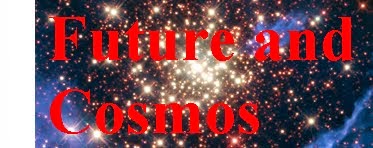Let us now look at what is
probably the most absurd theory of the universe ever promulgated:
what is called the Everett Many Worlds theory. The boundless
silliness of this theory hasn't stopped it from being accepted by
some intelligent minds.
To avoid confusion, we
must distinguish this concept from a related theory: the theory that
there are multiple universes, each with slightly different laws. Such
a theory is sometimes evoked to try to explain apparent examples of
fine-tuning within our universe.
The Everett Many Worlds
theory is a different idea: the idea that there are an infinite
number of copies of our own universe, each slightly different. The
wikipedia article on the theory states it this way: “In lay
terms, the hypothesis states there is a very large–perhaps
infinite–number of universes, and everything that could possibly
have happened in our past, but did not, has occurred in the past of
some other universe or universes.”
So imagine our universe as the root of
a tree. Imagine that the tree has an infinite number of branches,
each representing a possible future history that the universe could
take. According to the Everett Many Worlds theory, the universe is
always kind of splitting up so that each one of those infinite
branches is traversed, and every possible future history is realized.
Why on earth would any sensible person
believe such a thing? The rationale for the theory lies in quantum
mechanics. Let's imagine a particle bouncing around unobserved in a
box. According to quantum theory, there is a probability cloud that
represents the possible locations of the particle. A quantum
physicist says that the position of the particle is kind of “spread
out” throughout this probability cloud, rather than being in one
exact spot. When we observe the particle, there is something called a
“wavefunction collapse” that causes the particle to take a
particular location in the probability cloud.
The believer in the Everett Many Worlds
theory says that this particle actually had all of the possible
positions in the probability cloud. According to this theory, each
position is basically a separate parallel universe. From this type
of reasoning, the believer in the theory then takes an infinite leap
to the hypothesis that all possible previous quantum states of the
universe have been realized, and that all possible future quantum
states of the universe will be realized. The idea is that our
observed universe is only one of an infinite number of similar
parallel universes that exist at the same time, each with different
permutations.
The Everett Many Worlds theory is an
interpretation of the findings of quantum mechanics. There are
numerous other interpretations of quantum mechanics that do not
involve postulating any parallel universes. One of them is the
Copenhagen interpretation. You will find many other interpretations
of quantum mechanics described here.
Is the Everett Many Worlds the most
widely accepted interpretation of quantum mechanics? No. A 2011 poll of 33 participants at an
Austrian scientific conference found 6 endorsed the Everett Many
Worlds theory, and 22 endorsed other interpretations.
Let us now look at some reasons why
this theory should be rejected. The first and most powerful reason is
that there is not a particle of evidence to support it. We have never
observed even one parallel universe. There is no reason to hope that
we ever could observe any of the parallel universes imagined by the theory.
Another reason for rejecting the Everett Many Worlds theory
is that the theory is the most egregious violation possible of the
time honored principle of Occam's Razor, the principle that “entities
should not be multiplied beyond necessity” when trying to explain
things. In other words, the best way to explain something is the
simplest explanation that plausibly fits the facts. That is a
principle that has served modern science well for many centuries, and
has been endorsed by countless scientists. But to accept the the
Everett Many Worlds theory, one has to operate according to the
exact opposite principle: a ludicrous principle of “entities should
be multiplied to infinity when trying to explain something.” To
put it another way, a good theory should be lean and mean, but the
Everett Many Worlds theory is infinitely fat.
Another reason for rejecting the
Everett Many Worlds theory is that it requires you to believe in
endless absurdities. If the universe is always splitting up to create
all possibilities, then we must believe that there are countless
universes in which a dog was crowned as the king of the planet Earth,
countless universes in which everyone on Earth ate cow dung for
dinner today, countless universes in which you lived your whole life
dressed only in peanut butter, and every other absurdity you can
imagine. Talk about a reductio ad absurdum.
Another reason for rejecting the
theory, purely practical, is that the theory is morally poisonous.
Imagine a person is swimming by the sea, and he sees a child
drowning. Now if the person believes in the Everett Many Worlds
theory, he will say to himself: “Let me see, if I save the child,
there will still be an infinite number of parallel universes in which
the child dies, and an infinite number of parallel universes in which
the child lives. So it won't really make any difference if I act.”
The man will therefore be much more inclined to just stay comfortably
lying on the beach, rather than acting to save the child. I could
give a hundred similar examples of cases where a moral agent will
become indifferent to moral action, or more likely to act immorally, if he believes in an infinity of
parallel universes. People tend to act morally because they think it
makes a difference, but a person who believes in an infinity of
parallel universes won't tend to think his moral action will make a
difference. So he will be much more inclined to do what is easiest or
more enjoyable for himself, rather than what is morally best.
One other powerful objection to the
Everett Many Worlds theory is that it violates the known laws of
nature. We have a known law of nature called the law of the
conservation of mass and energy, which says that neither matter nor
energy can be created out of nothing. If it were true that the
universe was always splitting up into different future histories,
each of these cases of splitting up would involve something like the
creation of a new universe, which would violate the law of the
conservation of mass and energy in the most egregious way imaginable.
Still another objection to the Everett
Many Worlds theory is that we should not be making any radical
existential conclusions from quantum mechanics, because quantum field
theory is dead wrong in its prediction of the vacuum energy density.
Quantum field theory predicts that empty space is filled with virtual
particles that make its energy density 10120 times larger
than the actual observed density of empty space. In other words,
quantum field theory makes a prediction of the cosmological constant
that is inaccurate by a factor of
1,000,000,000,000,000,000,000,000,000,000,000,000,000,000,000,000,000,000,000,000,000,000,000,000,000,000,000,000,000,000,000,000,000,000,000,000,000,000,000,000.
Many physicists have noted this predictive failure in their
discussions of the cosmological constant.
This prediction has been called the
worst predictive error in scientific history. This enormous
predictive failure (and also the fact that quantum mechanics is persistently impossible to reconcile with our understanding of gravity) strongly suggests
that quantum mechanics is an imperfect sketch of some underlying
physical reality that can only be perfectly described through a
deeper theory. In such a case, we should refrain from making any
radical conclusions (such as the Everett Many Worlds theory) based on
our current understanding of quantum mechanics.
As it does not make any verifiable
predictions, and is not supported by any observations, the Everett
Many Worlds theory should be classified as psuedoscience rather than
real science. One can find some physicists who sell the theory
(partially to sell books), but in today's physics world that proves
little. There are also quite a few physicists who are proponents of
string theory, and there is no observational evidence for string
theory. An overabundance of speculation seems to be a problem in
modern physics, as has been pointed out by a few recent books.
Believing in an infinity of universes
makes no more sense than believing in an infinity of gods. There is no reason to believe in any
parallel universes, and no reason to flatter yourself by believing
there are an infinite number of copies of you in parallel universes.
You are the only you.
Postscript: See here to see a quote by a physicist Theo Nieuwenhuizen on the Everett Many Worlds theory:
But one thing is clear already: the many worlds idea about quantum mechanics is a mistaken, nonsensical issue. I spent 15 years on studying what goes on in quantum measurements, the only point of contact between the quantum framework and the reality of tests in detectors. We have good results and a good picture of what goes on. What is very clear: the many worlds idea comes in nowhere and it has nothings to to with the whole subject. It is a lot of talking about a misconceived structure of the theory.
Postscript: See here to see a quote by a physicist Theo Nieuwenhuizen on the Everett Many Worlds theory:
But one thing is clear already: the many worlds idea about quantum mechanics is a mistaken, nonsensical issue. I spent 15 years on studying what goes on in quantum measurements, the only point of contact between the quantum framework and the reality of tests in detectors. We have good results and a good picture of what goes on. What is very clear: the many worlds idea comes in nowhere and it has nothings to to with the whole subject. It is a lot of talking about a misconceived structure of the theory.


No comments:
Post a Comment